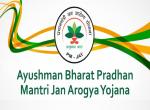Remember Alice in ‘Alice’s Adventures in Wonderland’ and her meeting with the Cheshire Cat? The cat vanishes, leaving only her grin behind, at which Alice says, “Well! I’ve seen a cat without a grin but a grin without a cat! It’s the most curious thing I ever saw in all my life!” The Pawan Bansal case, which pertains to a bribe allegedly offered by the then General Manager of the Central Railway, Mahesh Kumar to be appointed as Member, Railway Board, with the electrical portfolio, is even more curious a case than that of the grin without a cat. The officer was caught paying a bribe of Rs. 90 lakhs as a first installment of a much larger bribe paid for promotion as Member, Railway Board, with the demand being that the electrical portfolio will be assigned. The post not being immediately vacant, the beneficiary officer was promised the post when it fell vacant and meanwhile was told to take over as Member (Personnel). He was also, by way of compensation, allowed to continue as General Manager, Central Railways as an additional charge. We thus had the curious phenomenon of a person holding a higher post in Delhi and continuing to run the Central Railway on a lower post with headquarters in Bombay, both approximately 1400 kilometres apart.
The fact of Vijay Singla, the son of the then Railway Minister Pawan Kumar Bansal’s sister, being caught red handed taking a bribe of Rs. 90 lakhs naturally led to a public furore. Though the bribe taker used Chandigarh as the place where the bribe was given, much of the transaction had been negotiated at Delhi, using the residence and office premises of Bansal. A criminal case was registered and though he initially tried to brazen it out, Bansal ultimately had to resign.
The version put out by him was that he was an innocent victim, had no connections with his nephew and whatever transactions had occurred were without his knowledge or approval. The incontrovertible fact was that every order relating to an officer of the rank of Member, Railway Board had to be approved by the Minister. No one gives a bribe to obtain a favourable order unless he is confident that the bribe taker is so close to the decision maker that he can influence him. Singla, being a close relative of Pawan Bansal, was obviously such a person. The decision itself was in three parts:- (1) Promotion to Member, Railway Board, (2) Assignment of a portfolio of choice, (3) A dual charge till the wanted portfolio became available. In all this, for the minister to plead total innocence and total ignorance just does not ring true. Without a nexus, the bribe would not have been given and favourable orders could not have been obtained.
To cite an example to illustrate the point, the National Central for Human Settlements and Environment, Bhopal (NCHSE), submitted to the Government of India, Ministry of Rural Development a project proposal costing Rs. 40 crores, but with a clear understanding that it could only be sanctioned if the Central Government altered the norms for such proposal. Two persons claiming to be representatives of the then Rural Development Minister, Raghuvansh Prasad Singh, met me and demanded a bribe of 20 percent of the project cost. They even offered that they could get a sanction of Rs. 50 crores so that NCHSE would get the full required amount of Rs. 40 crores, the extra Rs.10 crores being paid by way of commission. What is more, they even offered to have audited accounts prepared which would cover the entire Rs. 50 crores. I checked with the Secretary of the Ministry who these people were because in any case there was no question of paying a bribe and he told me that they had no connection with the Minister or the Ministry. I then turned them out of my office. If Singla had been an imposter or unconnected with the Minister then, he, too, would not have been able to obtain a favourable order.
This was a fit case for the Delhi Special Police Establishment (CBI) to thoroughly investigate the question of a nexus leading to a conspiracy for bribe giving and taking. Despite Bansal denying any connection with his nephew, there is evidence to show that he, his wife, his son and nephew had common interests in more than one business undertaking. There is also the sequence of events of negotiations, the giving of a bribe and obtaining favourable orders which clearly indicates that this was a conspiracy.
Bansal should have been investigated and charge sheeted in this case along with his nephew and the bribe giver. Political considerations should not have come into investigations because after all, under Chapter XII of the Criminal Procedure Code (Cr.P.C)., the police enjoys total autonomy in the matter of investigation of an offence. The police cannot afford to show bias in an investigation. What is more, the police does not have any discretion in the matter of including as an accused person someone against whom there is no prima facie case, nor can it exclude a person against whom there is a prima facie case. However, the police has chosen to leave out Bansal from the list of accused and has instead made him a prime witness for the prosecution. This is even more curious than the case of the grin without a cat.
I have not seen the case diary and, therefore, would not like to comment in detail on the manner of investigation. However, such nefarious games are not unusual so far as CBI is concerned. In 1978, when I was head of the Delhi Development Authority (D.D.A), CBI had sought permission to prosecute Jagmohan, Ranbir Singh and other D.D.A officials in a case pertaining to demolitions carried out during the Emergency at Samalkha, Kapasheda and Andheria Mod, all leading to Indira Gandhi’s farm. The demolitions were done at the behest of the Commissioner, Municipal Corporation of Delhi, B.R. Tamta. CBI chose to exclude Tamta from the list of the accused, though he was the principal agent in this case. On this account, I rejected the application for permission to prosecute, stating that the investigation was tainted. I now find that this practice is fairly routine if the Bansal case is taken as an example.
In the D.D.A. case, when I refused permission, the then Special Director, CBI, R.D. Singh called on me and threatened me with dire consequences if I did not issue the sanction. At that stage, I had to invite him to select between walking out of my door and being thrown out of my window. I was on the fifth floor of the building and, therefore, the officer wisely chose to use the door. I am quoting this case because an organisation which under D.P. Kohli enjoyed a worldwide reputation for professional competence and integrity has been brought down to a level where its very credibility is now under question.
India cannot afford to allow its premier investigating agency to become a plaything of politicians or to allow politics and extraneous considerations to intrude into objective, unbiased investigation of offences and ensuring that the rule of law is enforced because criminals and other offenders know that this is one agency which will bring to book all offenders. That is how J Edgar Hoover, the founder Director of FBI, built up the Bureau into one of the finest law enforcement agencies in the world. In his declining years, Hoover, who had clearly outlived his utility and still was not retiring, allowed his pro McCarthy, anti communist, anti liberal bias to show and it took Robert Kennedy as Attorney General of the United States to tame him. Nevertheless, FBI did not allow this to adversely affect its professional integrity and competence.
The Times of India reports that according to Ranjit Sinha, Director, CBI, the former Railway Minister will not be deposing against his nephew, Vijay Singla. The words of Ranjit Sinha as quoted by the Times of India of 9th July 2013 are, “ Pawan Bansal will primarily be giving a statement relating to the procedure of appointment of Member (Staff), Mahesh Kumar, arrested by us”. According to Sinha, the organisation has no proof against Bansal and he was only being made a witness to understand the movement of files in the Railway Ministry when he held the portfolio and whether any outsider could have actually influenced postings. This explanation is strange because even the receipt and dispatch clerk of the Ministry could have shown, through the movement register, how the files moved. What is more, the Rules of Business of the Executive Government, which are framed under Article 77 of the Constitution, state how the business of government will be transacted. To quote Article 77 (3), “The President shall make rules for the more convenient transaction of the business of the Government of India and for the allocation among ministers of the said business.” These rules clarify at which level what type of decision will be taken and we do not need the evidence of the minister in this regard. The CBI goes on to say that according to Bansal, his nephew acted on his own and that the CBI’s Director of Prosecution has said that there was no ground to prosecute Bansal because there is no specific proof of his complicity. The primary objection to the argument given by Director, CBI, is that whereas in the examination in chief Bansal may restrict his answers to issues of procedure only, in cross examination counsel for the accused can put a wide ranging set of questions, which would lead Bansal well beyond what CBI says he will aver on oath. Can CBI prevent this? Singla is Bansal’s nephew and Bansal may try and save him, but what about the other accused? Will they not try and cross examine Bansal to try and show reasonable doubt about their culpability?
Under section 114 of the Indian Evidence Act, a court may presume the existence of certain facts. Illustration (f) in the section reads, “That the common course of business has been followed in particular cases”. If, therefore, the common course of business as per the Business Rules is that a matter relating to promotions in the Railway above a certain rank must have the minister’s approval, then in the Mahesh Kumar case, it has to be presumed, even without specific evidence being produced, that the matter must have gone up to the level of the minister. If the minister passes a certain order and prior to such an order, there have been prolonged negotiations between the minister’s close relatives and others with the senior railway officer, who has actually paid a bribe, then the presumption would be that there is some connection between the negotiations, payment of the bribe and the ultimate order. One cannot think of any circumstances under which in such a case the minister can be held to be totally aloof from and ignorant of the bribe. Surely the investigating agency has to present a case in court and then leave it to the court to decide whether the minister is guilty or not.
In the instant case, not only has CBI excluded Bansal from the list of the accused but is now going public in order to show that it has acted correctly. In a criminal trial, as per the provisions of the Code of Criminal Procedure, there is the investigating officer, the person who has filed the FIR (as a witness), the witnesses who have been examined, the accused against whom there is a prima facie case and the court of law which tries the case. The investigating agency has to prove its case before the court and not to the people through giving statements to the Press. Ranjit Sinha’s making statements to the Press in a case under investigation is highly undesirable.
Which brings me to the last point in this paper is the prosecution branch. Under section 25A, Cr.P.C, the States are permitted to establish a Directorate of Prosecution, under the administrative control of the Home Department, which will then be incharge of all prosecutions in the State. In the United States, the prosecution branch is under the District Attorney, who is not subordinate to the police, who can order further investigation in a case and who decides which case is fit for prosecution, who should be the accused and who should be the witnesses for the prosecution. There is thus a separation of functions between the prosecution branch and the investigating agency. In Britain, it is the Crown Prosecutors who perform this independent function. CBI, unlike every other police force in India, wants the Directorate of Prosecution to function under the Director, CBI, thereby ensuring that there will be no independent legal examination of the validity of the challan drafted by the agency. That is why if the Director, CBI, decides that a particular person is not to be prosecuted, the Director of Prosecution naturally has to act as a yes man. Even a layman can see the obvious fallacy in the decision of CBI not to prosecute Bansal, but the Director of Prosecution blindly agrees with the Director, CBI that there is no evidence against Bansal.
What is the evidence they are looking for? A confession by Bansal? Or a note on the file saying that because the bribe has been paid, a certain decision is recorded? In all other cases, the Commonwealth Games, the Coal Allocation case, etc., the CBI is following a logical sequence of events and arriving at certain conclusions. In the railway bribery case, CBI has chosen to select another path. This is not convincing.
It might be argued that the Pawan Bansal case cannot be commented upon because it is sub judice. No one is and can comment on the proceedings in court, but that does not preclude questions being raised about the method of investigation and the conclusions arrived at by the investigating agency. After all, the head of the agency is himself discussing matters relating to the case with the Press. Therefore, this is an absolutely fit case for discussion regarding the conduct of CBI, which I personally find wanting.
CBI has apparently played a clever game. All that Bansal has to do as an important prosecution witness is to turn hostile, with the CBI led prosecution allowing him to get away with it. This would probably lead to the acquittal of the other accused, including Bansal’s nephew and the promoted Railway Board officer. Can anything be more lovey-dovey and cosy than this?
Published Date: 15th July 2013, Image Source: http://english.globalgujaratnews.com









Post new comment